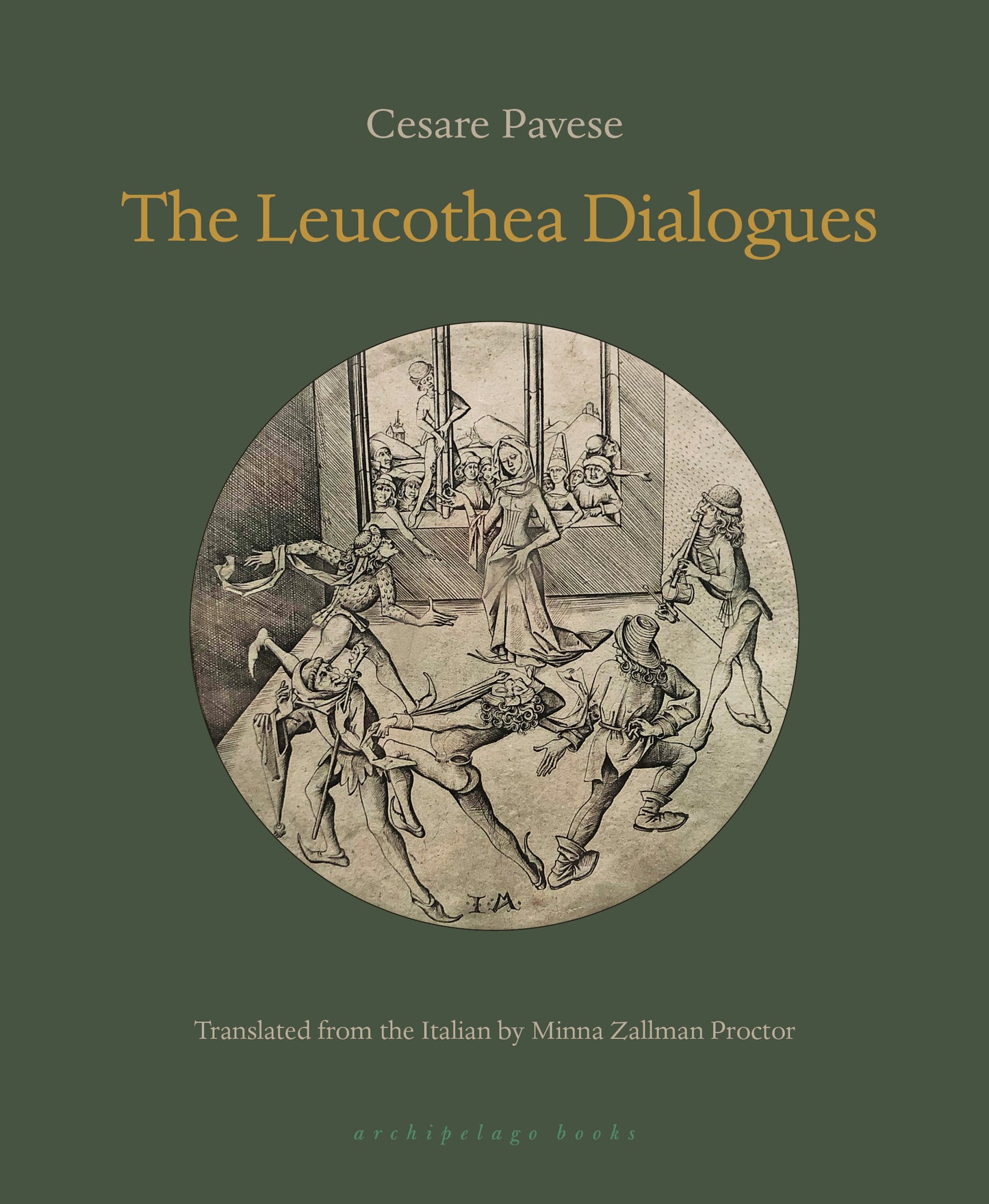The Leucothea Dialogues is rendered in resplendent prose . . . It offers English audiences a work as mournful and human as it is symbolic . . . Pavese’s dialogues engage with questions about humanity’s relationship to the divine, to violence, sexuality, and the sacred, all themes that are central to the mythic imagination he so hauntingly revives.
—Elena Borelli, Reading in Translation
What is it to be in love, to be cursed, to be lost, to lose one’s love, to remember, to smile? . . . Brief instants of animation, in the hands of Pavese and Proctor, are miraculous. The characters in these dialogues are both in and out of time, both mobile and static. That dialectic and its uncanniness clearly fascinated Pavese, whose smiling gods are trapped within a continuous present.
—Alec Mapes-Frances, The Paris Review
This elliptical 1947 work from Pavese, comprising 27 existentialist scenes with characters from Greek and Roman mythology and commentary from the author, is revived in a lively translation by Proctor . . . Throughout, Proctor ably captures the tension between Pavese’s conversational tone and harrowing themes.
—Publishers Weekly
These dialogues transform mythology, our oldest stories, into a new and unique form. Combining poetry and prose, they are crucial to understanding Pavese's themes—his preoccupation with antiquity, with silence, and with time. Proctor's enchanting English version honors the author's profound engagement with translation with precision, modernity, and wit.
—Jhumpa Lahiri
Pavese's Leucothea Dialogues stirs the settled soil of the mind. Minna Proctor uncovers new ground in her astonishing translation of this primal novel.
—Idra Novey
There can be no excuse for not reading Pavese, one of the few essential novelists of the mid-twentieth century.
—Susan Sontag
This is how writers in our ever-worsening world should write.
—Saul Bellow
Pavese's nine short novels make up the most dense, dramatic and homogeneous narrative cycle of modern Italy, and are also . . . the richest in representing social ambiances, the human comedy, the chronicle of a society. But above all they are works of an extraordinary depth where one never stops finding new levels, new meanings . . . Each one of Pavese's novels revolves around a hidden theme, something unsaid which is the real thing he wants to say.
—Italo Calvino
There is something about Pavese . . . that is insinuating, haunting and lyrically pervasive."
—The New York Times Book Review
One of the word's great creative depressives.
— Tim Parks, The Daily Telegraph
There is nothing with quite this passionate intensity and purity in American poetry . . . Hard Labor shows us Pavese at the outset of his own ultimately tragic career, writing poetry of courageous originality, intelligence, and power."
—Jonathan Galassi, The New York Times
Cesare Pavese is one of those singular, disruptive poets, like Blake or Lawrence, who go against the grain—or the flow—of their culture, and for whom precedents would be as hard to find as successors . . . His marvelously peopled poems not only document the time—what Calvino called 'the Pavese era'—but also bear witness to a unique and restless intelligence.
—Jamie McKendric, The Guardian






